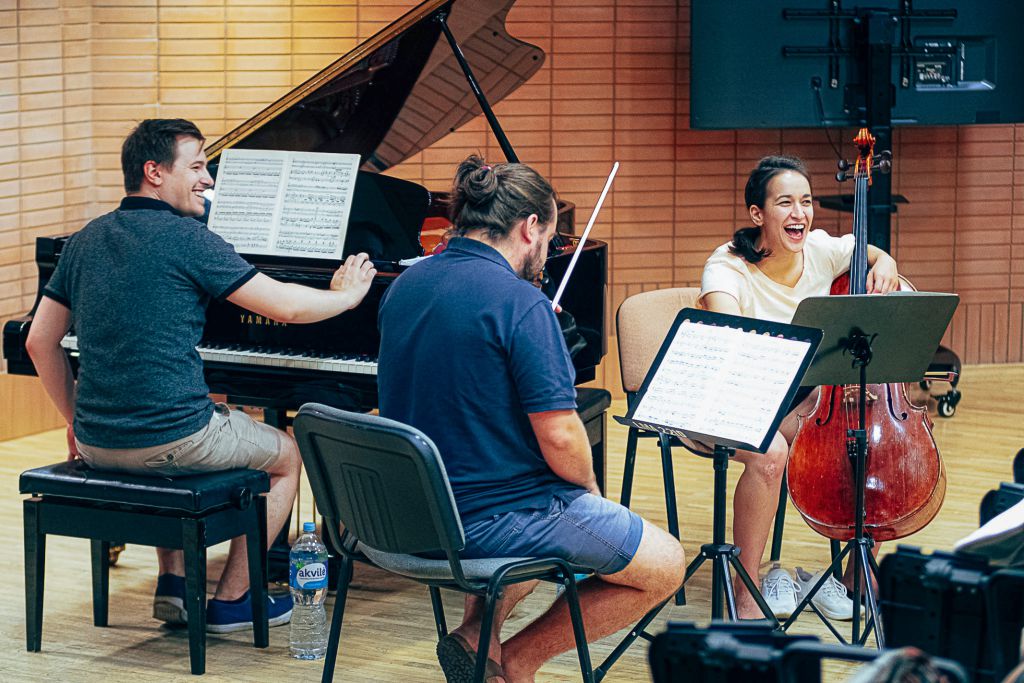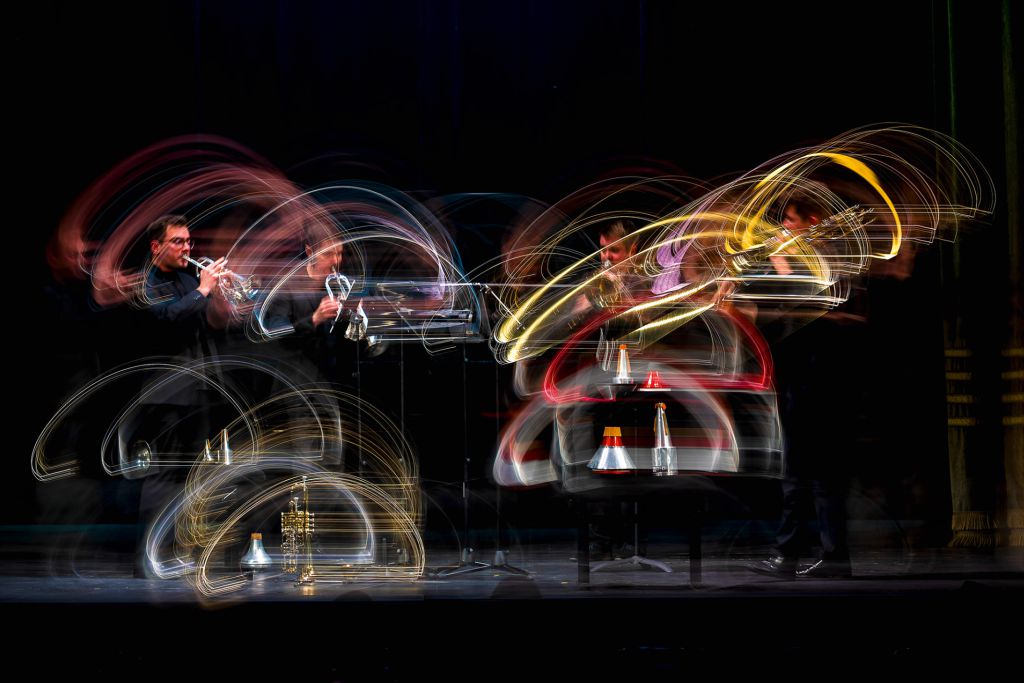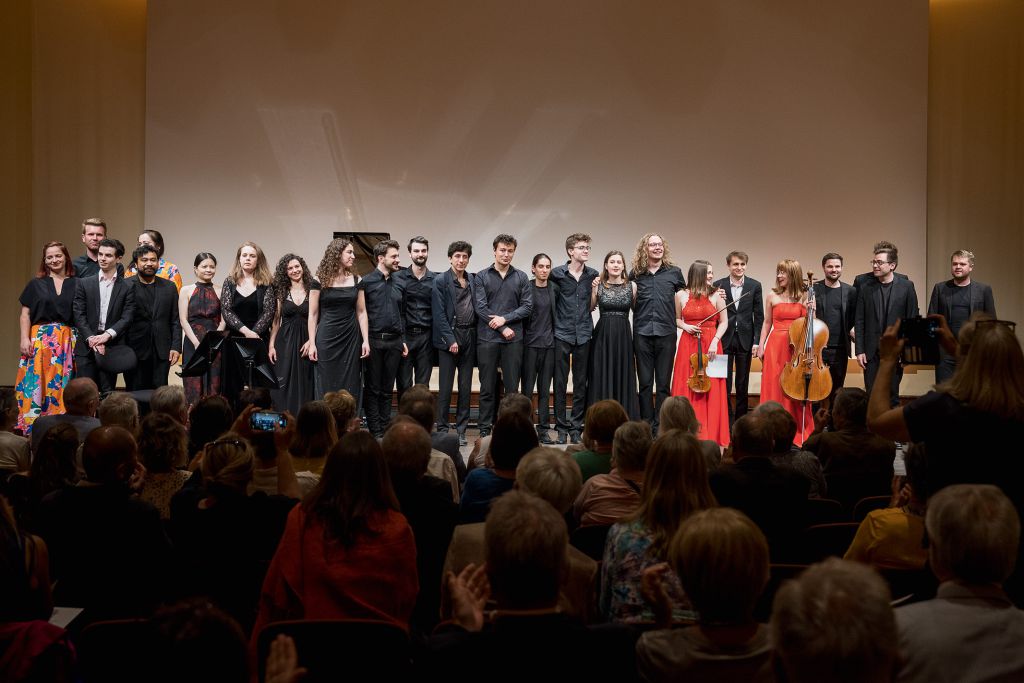Strengthening of the collaboration between European Higher Music Education Institutions (HMEIs)
Autumn 2020 saw ECMA – the European Chamber Music Academy initiate a broad-based process of development and professionalisation with the EU-funded project ECMA Pro – International Career Development and Socially Engaged Outreach. In just a few months, ECMA Pro will conclude. But even now, it’s clear: the project’s twelve European partners from nine countries can be more than satisfied with this cooperative project, which has produced surprising outcomes and learning experiences in many areas.

ECMA, which will be celebrating 20 years of existence in 2024, facilitates cooperation between European universities and conservatories of music as well as renowned music festivals in the interest of providing young, ambitious chamber music ensembles with an intensive two-year training programme that can currently boast 20 actively participating ensembles. In sessions lasting approximately one week, these groups pursue in-depth work with various tutors, receive additional input on philosophical, historical, and social contexts, and—last but not least—have the opportunity to engage in exchange with their colleagues from other ensembles, thereby building strong European networks.

The project ECMA Pro has been emphasising various aspects in order to further develop this foundation: career skills workshops and lectures as part of the ECMA Sessions support the ensembles in developing their careers beyond the artistic realm, the ECMA Career Skills Platform offers (largely open-access) materials for independent study, and the ECMA Switchboard presents ECMA ensembles to a professional audience—thus forming a digital interface between its musicians and concert organisers. In their training of the individual ensembles, experts encourage them to experiment in innovative and creative ways with new concert formats and forms of artistic cooperation, some of which are geared to addressing new audience segments. Opening up toward society is also a central aspect of ECMA’s cooperation with Musethica: the Musethica concept unites intensive concert training for highly qualified young musicians with the performance of chamber music in places where it wouldn’t otherwise be heard such as shelters for displaced persons, institutions for people with disabilities, healthcare facilities, and prisons. The ECMA Showcases, some of which are realised in cooperation with the renowned Flanders Festival Ghent, offer the ensembles the opportunity to present themselves in highly individual ways to a diverse audience consisting of agencies, concert and festival organisers, and chamber music afficionados. And finally, this coming summer will witness the launch of an online platform that will make available video tutorials on various themes of chamber music instruction to all those who are interested.

This range of additional activities made possible by the EU-co-funded project ECMA Pro has broadened the spectrum of the ECMA Sessions and facilitated new teaching and learning experiences, with significant support also being provided to the participating ensembles in the form of travel grants. But beyond all this, ECMA Pro has also reinforced collaboration between the ECMA partners in a lasting way: the project’s features and activities were developed in working groups that meet regularly and include representatives of the various partners.

Their focused, long-term work on concrete content and on formats via which to teach and promote the ensembles as well as the diverse perspectives of the various institutions lent these developments a special quality. The resulting formats were tested in various ways in multiple ECMA Sessions and then discussed further in the working groups in order to be improved and adapted based on these experiences. The existence of the working groups has included a significantly larger and more diverse circle of individuals to be involved in this process than would have been possible in “everyday ECMA life”. This has made it possible to draw on a greater variety of know-how and experiences, resulting in a genuine “community of practice”. A central priority in the coming months will be to integrate as much of this practice as possible along with the lessons learned from the special situation of “being in an EU project” into ECMA’s ongoing work. Such a project’s success, however, does not simply materialise out of nowhere but builds upon the ECMA partners’ longstanding, active, and trusting collaboration—collaboration that is now contributing in a foundational way to the new European University Alliance IN.TUNE, which will include several ECMA partners.
Further informationen

